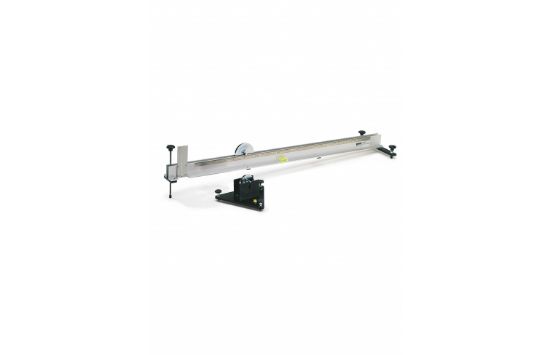The GUNT Rolling Disk on Inclined Plane Experimental Unit is designed to experimentally determine the mass moment of inertia using both rolling motion and physical pendulum techniques. It explores how the rotary moment and angular acceleration are related and how inertia depends on the shape and axis position of a rotating body.
Product Features
- Mass moment of inertia determined by measuring rotary moment and angular acceleration.
- Inclined plane experiment allows a disk to roll down a slope with adjustable inclination via height adjustment and goniometer reading.
- Measures time and acceleration distance of the rolling disk to calculate mass moment of inertia.
- Includes pendulum experiment with disk suspended in a mount, axis displaced from center of gravity.
- Disk performs pendulum motion; inertia calculated using measured time, mass, and distance to center of gravity (via Steiner’s theorem).
- Two different disks provided for comparative analysis of inertia based on geometry and mass distribution.
- Experimental setup includes precision alignment using integrated spirit levels.
Benefits
- Allows hands-on calculation of mass moment of inertia through both dynamic and oscillation methods.
- Reinforces theoretical understanding with measurable, observable experiments.
- Supports curriculum in physics and mechanical engineering on rotational dynamics and rigid body motion.
- Offers comparative study with two different disks and two experimental setups.
Why Choose the GUNT Rolling Disk on Inclined Plane Experimental Unit?
This unit provides comprehensive training in rotational dynamics and mass moment of inertia through rolling and pendulum tests. With adjustable setups and precise measurements, it is ideal for classroom demonstrations and engineering laboratory analysis of inertia principles.

